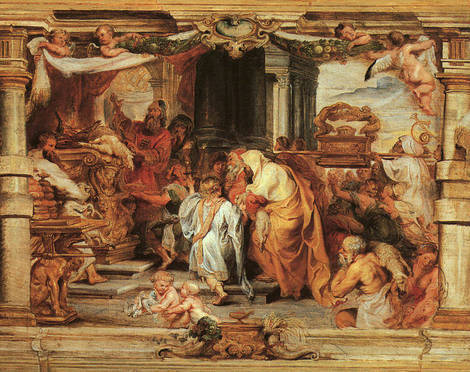Protect Me From Your Desire
The great Russian writer Fyodor Dostoyevsky was famously known to have been put through a mock execution for being part of a liberal intellectual group called the Petrashevsky. He and his comrades were brought outside and put in front of a firing squad. Only at the very last moment was the pardon of the Czar read out and their sentences reduced to hard labour.
Such mock executions are psychologically traumatic for they cause a person to experience the inevitability of their own extinction. Yet there is an experience that is even more difficult to bear. In order to understand this let us imagine that you are also facing execution in the same prison as Dostoyevsky. You have seen numerious people executed before you, but now you are confronted with people in the same situation as yours, who gained a reprieve at the last moment. Suddenly your own execution date (lets say several months from now) takes on a different significance. Indeed you may initially experience a rush of excitement, "perhaps I will be reprieved at the very last moment", "maybe the Czar's desire is for me to live rather than die".
Before you heard about the mock executions the desire of the Czar was clear – he wanted you dead. Now the Czar's desire is experienced as enigmatic – "what does he want of me"? A question that can become so intolerable you no longer sleep at night, or that becomes so all-encompassing as to disturb your deepest slumber. What might have initially been a moment of joy ("he might not want me dead") now becomes more oppressive than the certainty you were going to die ("there is no hope, the others desire is clear").
In order to escape the agonizing anxiety you may well have to psychologically assume the worst. For the fear of ones own death will be preferable to the anxiety of unknowing.
This analogy can help us understand why, when confronted with the enigmatic desire of someone we love, we often have to psychologically imagine the worst. For the anxiety of unknowing in the face of the other's ethereal desire is actually worse than the fear that their desire for us is to die (symbolically, or perhaps literally). At least, as a condemned man, we might be able to get a nights sleep.
It is in light of this that we can see how demands help to protect us from the desire of one we love. When two people make demands of each other there is a certain sense in which we know where we stand, the others elusive desire is seemingly pinned down and we feel that we are able to satisfy it. Whether it's, "I want you to pick up the kids", or "I want you to leave", these enable us to satisfy the others desire (though such demands are rarely as transparent as the they seem, for example, "I want you to leave", might mean, "I think you want to leave so I am asking you to go in order to see if you will stay").
Theologically speaking the true significance of contractual relations between the divine and human was not, as most people believe, to bring us closer to the divine but rather to protect us from the enigmatic desire of the divine though a set of highly regulated actions. If obeyed one was blessed, if not one was cursed. Such contracts were constructed by people in order to protect them from the holy terror generated by a confrontation with the mystery of the wholly other.
On the level of interpersonal relations we can understand how the act of marriage functions as a way of protecting us from the terror of the others elusive and fluid desire by putting the veil of demand over it. In the marriage contract promises are made that attempt to do the impossible – contain the others desire in the earthen vessel of a lasting demand (for when one makes a vow one is able to hold it against them). A type of strategy that is perhaps as necessary as it is doomed.
For the truth that we wish to avoid facing is that we cannot can look into the face of our beloved's desire and live.
(Art – Sacrifice of the Old Covenant by Rubens)
Peter Rollins's Blog
- Peter Rollins's profile
- 314 followers




